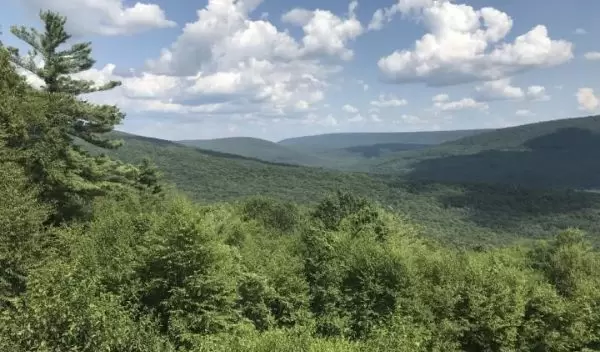
Bedrock type under forests greatly affects tree growth, species, carbon storage
A forest's ability to store carbon depends on the bedrock beneath, according to Penn State researchers who studied forest productivity and composition and the physical characteristics of rocks in the Appalachian Ridge and Valley Region of Pennsylvania.
The results have implications for forest management, the researchers suggest, because forests growing on shale bedrock store 25% more aboveground carbon and grow faster, taking up about 55% more carbon each year than forests growing on sandstone bedrock.
The findings demonstrate that forests underlain by shale provide more ecosystem services, said geoscientist Margot Kaye. Shale forests make up a smaller portion of the landscape, however, and should be high-priority candidates for management or conservation, Kaye said.
To reach their conclusions, the scientists analyzed forest inventory data from 565 plots in Pennsylvania.
While forests underlain by both shale and sandstone bedrock were oak-dominated, the tree communities are very different. Northern red oak is more dominant on shale bedrock; chestnut oak dominates on sandstone. Most species in the forest tend to be more productive on shale, and the diversity of tree species is higher in sites on shale bedrock.
Forests grow faster over shale bedrock than sandstone bedrock because of soil characteristics that generally make water more available to trees.
The findings of the National Science Foundation-funded research, published in Forest Ecology and Management, are important, lead researcher Warren Reed noted, because the information about underlying bedrock type has been readily available but not previously used to understand forest growth.
Added Enriqueta Barrera, a program director in NSF's Division of Earth Sciences, "This study supports the goal of understanding carbon storage through a better comprehension of forest management. Incorporating information on bedrock into forest carbon storage strategies demonstrates a quantifiable improvement."
